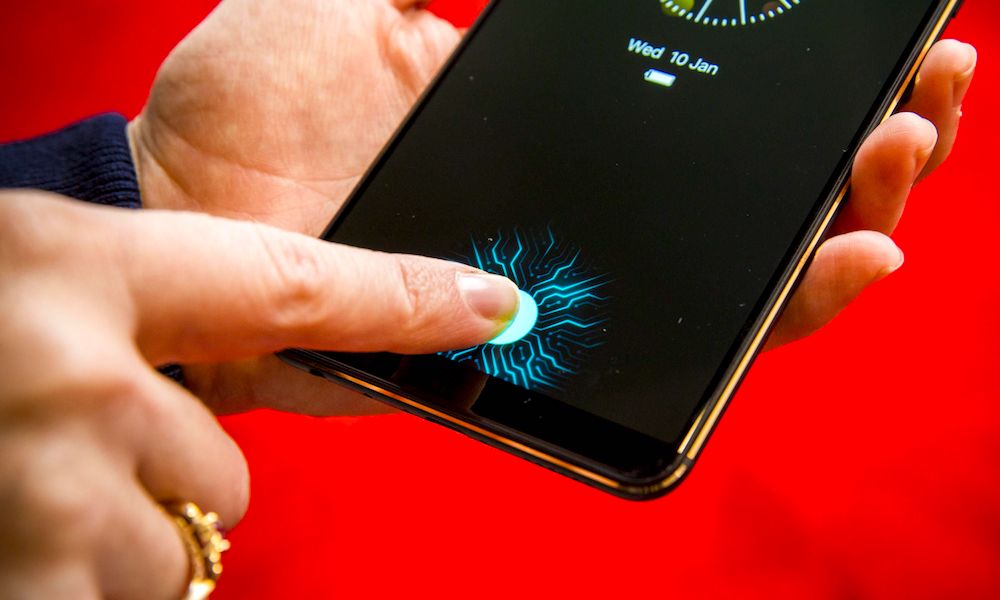Android OEMs: Face ID Is Too Expensive to Copy, So Have a Fingerprint Sensor Instead
 Credit: CNET
Credit: CNET
Toggle Dark Mode
It wasn’t too long after iPhone X arrived on the scene last fall, that Android device-makers far and wide began scrambling to acquire the same biometric security and front-facing camera tech as Apple’s Face ID-powered TrueDepth sensors.
Considering the scarcity of these advanced VCSEL-equipped camera modules — coupled also with the fact that Apple’s are a good 2.5 years ahead of their closest competition — it should come as no surprise that companies like Samsung have already tried and failed at replicating Apple’s industry leading technology.
Now, it appears that at least some Android OEMs have basically given up hope of adopting a TrueDepth-like sensor on their upcoming flagships, deeming the technology is just too damn expensive to try copying in any meaningful way. As a result, they will be shifting their focus to Qualcomm’s burgeoning under-the-glass fingerprint sensors instead.
These revelations were highlighted in a DigiTimes report published Friday morning indicated that Android makers are shifting their focus towards integrating glass-embedded fingerprint scanners into their “all-screen” flagships — mainly since “adopting 3D sensor-based face recognition modules are too costly to afford.”
Specifically, DigiTimes stated that a combination of hardware and software development costs are to blame for Android OEM’s decision to opt out of Face ID-caliber facial recognition tech, noting that $60 per unit — the estimated cost of Apple’s advanced TrueDepth modules — leaves little room for them to profit like Apple (whose $1,000 iPhone X is priced at a more premium level than most Android flagships).
“Android makers are also worried about possible patent infringement from adopting Infrared dot projector systems,” 9to5mac noted, adding that, as a result of these costly complications, most Android OEMs including Huawei have decided to employ Qualcomm’s ultrasonic glass-embedded fingerprint technology as their next-generation authentication standard.
DigiTimes noted that “Qualcomm’s fingerprint sensors are three times more expensive in unit cost than traditional counterparts, but its module is only about 0.44mm thick, and can work through up to 800-micron cover glass, compared to only 200-300 microns in glass thickness for traditional capacitive fingerprint sensors.”
They also function properly when “wet or greasy,” according to the report, “unlike the traditional fingerprint sensing modules found on phones today.”
Overall, it’s a combination of the high cost associated with duplicating TrueDepth-grade 3D sensors, patent infringement concerns, and reports of “lackluster sales performance of iPhone X devices” that has Android OEM’s shying away from them in favor of Qualcomm’s fingerprint tech.
DigiTimes also noted that Huawei’s upcoming Mate 11 phablet, which is due out sometime in second-half of 2018, will incorporate the Qualcomm-built fingerprint sensing solution. It’s worth pointing out that Huawei won’t be first to market with that technology though, which is an achievement owed to Vivo’s X21 UD flagship.






